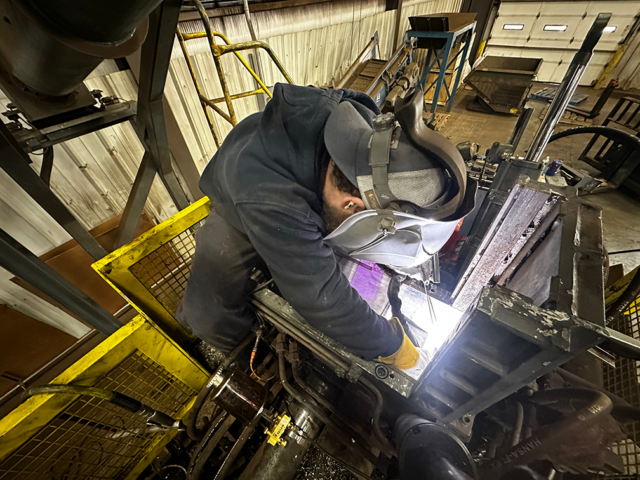Filter


Happy Holidays!
We hope our readers have a joyful holiday season and a peaceful new year. We’ll return Jan. 2 with a recap of some of our 2024 blogs!…
December 17, 2024
Moving from Medicaid to Medicare May Mean Better Care
Medicare accounts for more than 10 percent of federal spending. Medicaid, which covers 90 million low-income workers and disabled people, has the largest enrollment of any government insurance program. The conventional wisdom on these major programs is that Medicaid, which pays less for physicians’ services, provides lower-quality medical care than Medicare. But research is scant on whether that’s the case and where the Medicaid coverage might fall short. A new study focused on an older population with a high need for care found that total government spending on each Medicare patient is $2,100 more than the spending on each Medicaid patient – or an additional 13 percent. Harvard University and World Bank researchers used federal data to track two groups of…
December 12, 2024
Report Paints Picture of Care Workers in the United States
This post was written by Harry Margolis, a new contributor to the Squared Away Blog. I’ve been ringing the alarm about the coming elder care crisis beginning in about a decade when the oldest baby boomers start reaching their late 80s. One of the biggest challenges will be the shortage of direct care workers. PHI, a nonprofit that supports care workers, recently issued a report: Direct Care Workers in the United States: Key Facts 2024. Here are some of its findings: Low Pay Female, Older, People of Color Overall, the report tells us that we rely on a low-income, female, largely minority and immigrant workforce to care for our elderly and disabled citizens. As the need for elder care grows, t…
December 10, 2024
Delaying Social Security Helps All Couples but High-income Couples More
The longer a husband delays his Social Security retirement benefits, the larger the check his wife will get when he dies. And odds are that he’ll die first, so that decision to delay will leave her with more income every month into her 80s or even 90s. This fairly common marriage arrangement – a husband who earns more than a younger working wife – is the focus of new research analyzing how much these couples receive in total Social Security benefits under the program’s rules. This hinges not only on how long a husband waits to sign up for his benefits, which increases his monthly check, but also on how long he will live and collect them. The disparity in…
December 5, 2024
Casinos on Tribal Lands Boost Economies – and Longevity
Native Americans die 12 to 13 years earlier on average than Whites. Extreme poverty on reservations has been linked to alcoholism, addiction, and deaths of despair. Poor health played out dramatically during COVID, when Native Americans had some of the highest death rates in the country. But they can live slightly longer when a casino is built on tribal lands, a new study finds. What’s the connection? White Americans live longer, thanks to higher incomes they use to pay for quality medical care and food and safe housing. A similar effect comes from successful gambling operations that generate income for tribal governments and put more money into the local economy as workers patronize stores, restaurants, farms, and entertainment venues, according to researchers…
November 26, 2024
Up to 480,000 More Children Might be Eligible for SSI
In most states, when the low-income families of a child with a disability receive cash payments from the federal Supplemental Security Income (SSI) program, the child is automatically eligible for Medicaid health insurance. In reality, up to 480,000 children on Medicaid who might also be eligible for SSI are not receiving it, according to a new study by researchers at Colgate University, Westat, and Mathematica. This means that only about seven out of 10 of the children likely to be eligible for SSI are currently enrolled. These are children whose disabilities typically require intensive medical care and could potentially benefit from the extra $943 a month to help their families pay for their care. The estimate of many more eligible children comes after…
November 21, 2024
The 100-Year Life: Is It Real?
If not, even an 80- to 90-year life needs rethinking. This post was written by Harry Margolis, a new contributor to the Squared Away Blog. In their book, The 100-Year Life: Living and Working in an Age of Longevity (published in 2016), the psychologist Lynda Gratton and economist Andrew J. Scott predict that living a century will soon become the norm and discuss the implications of a longer lifespan on work, retirement, family life, and society. Gratton and Scott tell us that with longer lifespans we need to abandon the concept of a three-stage life – youth and education, middle-age and working, and old-age and retirement. Instead, they say, we and our institutions need to become more flexible, allowing us to move in and out…
November 19, 2024
Black Workers Rely More on Federal Disability
A small fraction of U.S. workers are on federal disability insurance – about 8 million – but the monthly cash payments are crucial to them because they’re no longer able to work. What stands out in a new study – the first fine-grained picture of who gets the benefits – is that Black Americans are highly reliant on them. They have the highest participation rate, followed by Whites and then Hispanics, Native Americans and people of Asian descent. Black people on disability also tend to be less healthy, according to researchers at the University of Illinois and Cornell University. They proposed two opposing interpretations of their findings. Black non-Hispanic workers’ high participation might “indicate that the [disability] program is working as intended”…
November 14, 2024
Leaping into the Unknown: it’s Called Retirement
Retiring, for many if not most, is a leap into the unknown. New retirees quickly learn that hard work is required to fill the void created by leaving the workplace. Building and consolidating this new life is the subject of an eye-opening book, “Retiring: Creating a Life That Works for You.” Written by five academics in the field of management, their book is so useful to readers because they interview more than 100 older workers and retirees who have gone through this process. The authors use their unique experiences to explore the emotional and tactical challenges they face in deciding whether to retire and, once they do, how to rebuild lives dominated by decades of work. There is Gene, who…
November 7, 2024
Difficult Work Pushes More Blacks into Early Retirement
Exposure to dangerous jobs and work environments over a prolonged period strain older workers’ bodies. The jobs may involve physical occupations like construction, working in cramped spaces or around hazardous chemicals, or stressful shift work. A new study confirms that the disabling conditions that can result from these types of jobs help to explain why Black workers are more likely to retire early and sacrifice future income to preserve what’s left of their health. The researchers were able to explore the impact of doing hazardous work over more than three decades thanks to a new survey that asks Americans over age 50 for detailed job histories. The people who were surveyed listed up to 10 jobs they’d held for at…
October 31, 2024
Savings Boost from Auto-Enrollment Wanes Over Time
Forty percent of U.S. private-sector workers in a 401(k) retirement plan are in plans with automatic enrollment, and the widely agreed-upon story is that these plans work well. Now comes a more nuanced assessment, which finds they aren’t working quite as well as everyone had hoped. The study, conducted by some of the pioneers in auto-enrollment research, shows that numerous dynamics significantly reduce how much is being saved in 401(k)s. Workers often leave the firms before their employer matching contributions have fully vested, withdraw money from savings, or opt out of the automatic increases in contributions designed to accelerate their savings incrementally. Auto-enrollment still results in more saving than when workers are left to their own devices. But their often-overlooked…
October 24, 2024
How States Can Move Toward Healthy Aging
This post was written by Harry Margolis, a new contributor to the Squared Away Blog. On my Risking Old Age in America podcast, I discuss healthy aging with Taylor Jansen of the Healthy Aging Data Reports Lab at the University of Massachusetts Boston. They produce studies on the factors contributing to healthy aging in Massachusetts, Connecticut, New Hampshire, Rhode Island, Mississippi, and Wyoming. The reports measure both the health of older residents of the six states and the factors that contribute to their healthy (or unhealthy) aging with the goal of helping communities foster better health among their seniors. Urban vs. Rural Jansen points out that the six states have significantly different patterns of healthy aging. Some states are more urban and others mor…















